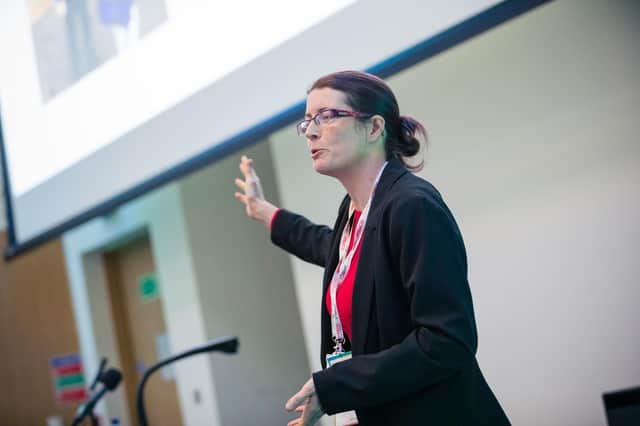Scotland’s recovery hinges on green workforce - comment


We need a workforce with an overarching aim to protect the global environment to deliver a green economy. The ambition and force for change is evident in today’s young people.
According to a recent survey by domestic and business energy supplier Good Energy, 50 per cent of those aged 18-34 wanted a job in the green economy. A further 58 per cent thought climate breakdown was our next big global crisis, while 45 per cent believed sustainable sectors offered a more secure career.
Advertisement
Hide AdAdvertisement
Hide AdHow can Scotland turn this ambition into action and create opportunities for young people to carve out careers in roles that protect the planet and match their values and morals? Industrial biotechnology (IB) is a key sector that can help to deliver employment opportunities that live up to their expectations of achieving impact and real change in the fight to tackle climate change and support the growth of hi-tech, low-carbon industries that will drive and sustain Scotland’s economy and environment.
I collaborate with colleges and universities to design and develop courses from higher national diploma (HND) through to PhD level to ensure a strong pipeline of skilled graduates who can fuel Scotland’s IB growth to tackle climate change. Scotland has always had a strong cohort of science and engineering graduates, although not necessarily with the specific IB skills industry needs.
That is why the IBioIC skills team has been working with education and industry partners to develop IB courses that will help to deliver better, cleaner and safer products across various industries. The HND programme has supplied industry-ready entrants into the sector as technicians – an area where a key gap was identified.
The Retain and Inspire aspect of the programme sees industry members delivering guest lectures and workshops and IBioIC arranges site visits to give students insight into the roles available in the IB sector, including the commercial and manufacturing aspect.
IBioIC also provides funding and training for MSc and PhD students specialising in IB. Students are given access to IBioIC member networks, and support is also offered on the commercial aspects of business. Students also receive presentation and communications skills workshops and these are put to good use when PhD students participate in the Leaders in Science programme.
Training
Run by IBioIC in partnership with founder Jo Sadler of the University of Edinburgh, it sees PhD students train and support high-school pupils to create and deliver science, technology, engineering, and mathematics content to primary school children, delivering sessions on topics such as global health, drugs and vaccines, and food security. IBioIC’s aim to grow a green workforce starts from an early age.
But it’s not just pupils and students who can lead the green charge. Scotland already has a skilled talent pool that could help the transition to a cleaner and sustainable economy, especially in established sectors where IB is already disrupting, such as traditional chemicals and manufacturing. IBioIC runs two bioprocessing hubs in Glasgow and Edinburgh where courses let employers help them cross-train and upskill their staff.
Courses on downstream bioprocessing specific to the biotech sector, process costing and bioinformatics are just a few that can help organisations futureproof their business and support the growth of this dynamic and developing sector. The pace of change is fast and the opportunities for an interesting and rewarding career in the IB sector are wide and diverse.
Advertisement
Hide AdAdvertisement
Hide AdThere is a huge appetite in the IB sector in Scotland to drive the green economy. It is an ambitious and inclusive sector. There are many entry points and they all lead to a community and career that delivers real impact for the planet.
Rachel Moir, skills programme manager at IBioIC
A message from the Editor:
Thank you for reading this story on our website. While I have your attention, I also have an important request to make of you.
The dramatic events of 2020 are having a major impact on many of our advertisers - and consequently the revenue we receive. We are now more reliant than ever on you taking out a digital subscription to support our journalism.
Subscribe to scotsman.com and enjoy unlimited access to Scottish news and information online and on our app. Visit https://www.scotsman.com/subscriptions now to sign up. By supporting us, we are able to support you in providing trusted, fact-checked content for this website.
Joy Yates
Editorial Director
Comments
Want to join the conversation? Please or to comment on this article.